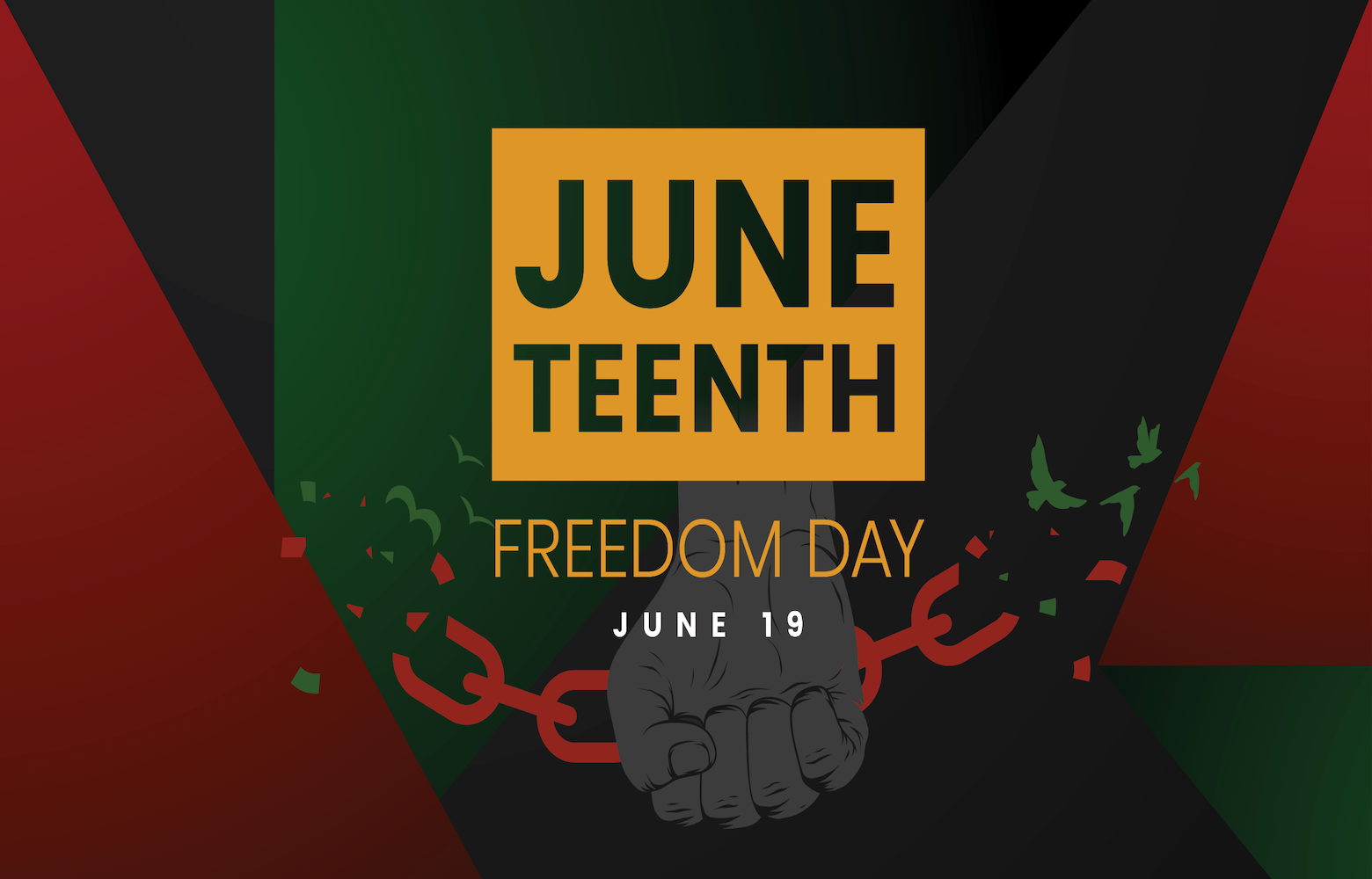Juneteenth celebrates the end of slavery in the United States. Though dating back to 1865, it wasn't until 2021 that this holiday became celebrated more widely, from backyard parties and citywide celebrations to local businesses and corporate offices.
"Juneteenth marks our country’s second independence day," according to the National Museum of African American History & Culture. "Although it has long been celebrated in the African American community, this monumental event remains largely unknown to most Americans." Whether Juneteenth is your personal story or the story of one of your colleagues, taking the time to learn the history and legacy of Juneteenth can help us all contribute to a more diverse, engaged culture at work and at large.
Ahead, we'll outline the history of Juneteenth and ways to celebrate Juneteenth at work.
Let's get started.
Learn and share the history of Juneteenth
Though the Emancipation Proclamation was effective in 1863, "most slaves in Texas were still unaware of their freedom," according to the Galveston Historical Foundation. It wasn't until June 19, 1865 that the last enslaved Americans were finally freed from bondage. The Juneteenth holiday marks the day when Union Major General Gordon Granger broadcast General Orders, No. 3 in Galveston, Texas, informing the people of the state that, "in accordance with a Proclamation from the Executive of the United States, all slaves are free."
The first Juneteenth celebrations took place in Texas and included prayer meetings and the singing of spirituals, per Britannica. Since then, Juneteenth has become an annual tradition for many members of the Black community. In fact, the majority of Black adults in the U.S. have ancestors who were enslaved, according to Pew Research Center.
On June 17, 2021, President Joe Biden signed the Juneteenth National Independence Day Act, officially recognizing Juneteenth as a national holiday. "By making Juneteenth a federal holiday, all Americans can feel the power of this day, and learn from our history, and celebrate progress, and grapple with the distance we’ve come but the distance we have to travel," President Joe Biden said at the signing.
One of the main ways to celebrate Juneteenth at work? Educate yourself on the history, and have conversations with the people around you about what you've learned. As a relatively new holiday, there will likely be opportunities to talk about why we should celebrate Juneteenth. Next, let's talk about the "how."
Ways to celebrate Juneteenth at work
Whether you have the day off or not, there are many ways to recognize and celebrate Juneteenth at work. Start out by simply talking about the meaning and importance of Juneteenth, then look for ways you can educate yourself or your team. From there, seek out avenues to give back to the community.
Let leadership start the conversation
Engaging your team in the history of Juneteenth starts with leadership. Talk about the meaning of Juneteenth, why your workplace is celebrating it, and how team members can get involved in celebrating Juneteenth at work and even outside of the office.
Host a lunch and learn
One of the best ways to celebrate Juneteenth at work is to host a lunch and learn. Whether held virtually or in-person, these types of events are a great way to connect your team around a common goal or story. For Juneteenth, you could stream a documentary like Annenberg Classroom's "Juneteenth" film featuring Opal Lee, considered the grandmother of Juneteenth, and a host of historians and scholars. If possible, consider inviting an expert from a local historical society or a community leader from your local Juneteenth celebrations to come and speak about the holiday.
Organize a donation drive
Juneteenth is a great opportunity to pause, learn, and support causes related to racial justice and diversity, equity, and inclusion. How this takes shape at your workplace will depend on the community you're in and the needs within it. Perhaps you could organize a donation drive to support a Black-owned educational nonprofit, for example, or raise funds for entities like the Thurgood Marshall College Fund, American Civil Liberties Union (ACLU), or the National Association for the Advancement of Colored People (NAACP).
Continue learning and growing
Learning about holidays like Juneteenth is about more than just the one day off (or at) work. By learning the stories of the people around us and the country we came from and are continuing to build, we can collectively work toward a better future.
Here are some ways to continue learning and growing in diversity, equity, and inclusion areas:
- Read diverse works. Non-fiction books like Isabel Wilkerson's "Caste" and "The Warmth of Other Suns" offer an expansive view of the Great Migration and American life today. For Juneteenth specific reads, check out this list.
- Volunteer in the community. Getting out into the community is one of the best ways to go beyond theoretical knowledge about an issue or population. Not only will you get to meet a need in your community, you'll also have an opportunity to hear people's personal experiences. Advancing inclusivity in our spheres of influence means creating space for other people's stories.
- Be an advocate. If there's a cause or issue that you care deeply about, make that known; be an advocate. For example, if diversity is something you value, consider ways you can incorporate diversity into your leadership, management, or work. If inclusion has been a pivotal part of your story, see how you can make it a part of someone else's by intentionally creating space for them. There are countless ways to be an advocate.
Connect with AboveBoard's expansive community of leaders
At AboveBoard, we're on a mission to reshape the global executive workforce to be representative of the population, creating lasting and meaningful change in the world. Our expansive community is made up of executives, companies, organizations, and individuals all driven by this common mission. Everyone who believes in the far-reaching benefits of expanding access to leadership opportunities and is invested in working toward a more equitable society is welcome here.







.png?width=352&name=Blog-Member-Spotlight_Clayton-Harris%20(1).png)

